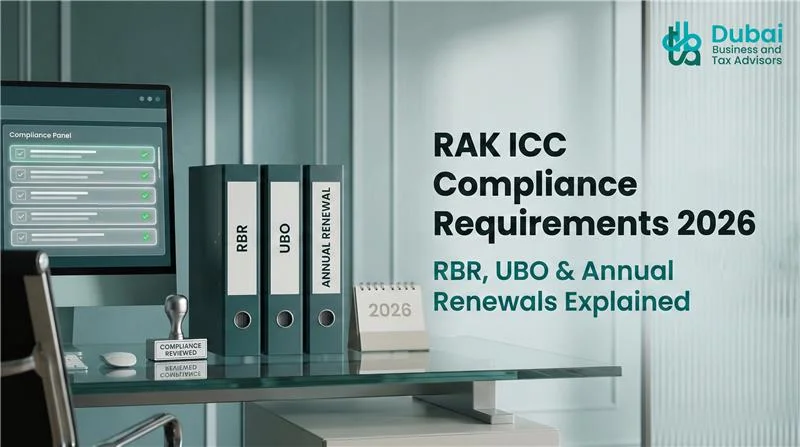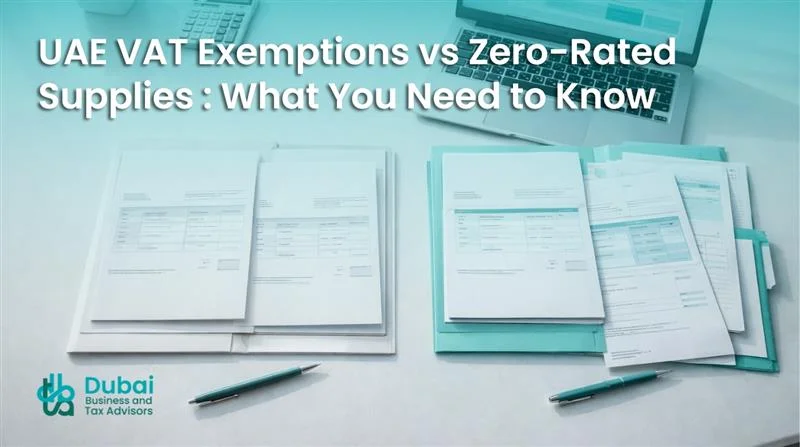Smart IT Audit & System Audit Services in UAE
87% of UAE companies have experienced a cyber incident in the past two years. At Dubai Business & Tax Advisors, we deliver IT audit services in Dubai, IT audit, compliance IT audit, and IT security audit solutions that uncover vulnerabilities, strengthen your systems, and ensure alignment with UAE, UK, and global regulatory frameworks, protecting your data, reinforcing infrastructure, and supporting sustainable resilience.

- 10+ Years Of Experience
- 1500+ Audit Completed
- Financial Experts
- 2500+ Consultation
Why Audit & Assurance Is Critical to Your Business
Over 200,000 cyberattacks are blocked daily in the UAE, demonstrating how critical robust IT oversight has become. In this environment, IT audit is not optional, it is an essential safeguard to maintain system integrity and organizational resilience.
An IT internal audit assesses the effectiveness of your controls and governance, while a compliance IT audit ensures alignment with local regulations, international standards, and industry frameworks. Through IT audit services and IT security audits, we uncover configuration weaknesses, flawed procedures, or exposure to emerging threats.
Additionally, IT site audit operations provide on-premises evaluation of infrastructure, physical security, and network architecture. Our IT audit consulting services then translate findings into actionable strategies, helping you remediate risks and strengthen your defenses.
By choosing Dubai Business & Tax Advisors you will:
- Gain visibility into hidden vulnerabilities before threats strike
- Achieve regulatory compliance with UAE, UK, and global standards
- Receive strategic remediation plans and advisory support
- Strengthen operational continuity and data protection

Our Audit & Assurance Scope in IT Services
In a digital landscape where every system interconnects, the scope of an IT audit is broad, and missing a piece can expose your organization to risk. Dubai Business & Tax Advisors ensures full coverage of your IT environment by scrutinising controls, performance, compliance, and security across all layers. We help you uphold governance, protect data, and align your infrastructure with regulatory and operational objectives.
We design the audit to match your business context, system architecture, and risk profile. Whether your operations span multiple jurisdictions or your IT footprint includes cloud, on-premise, hybrid, or remote access systems, our scope is comprehensive and adaptive.
Comprehensive IT Audit Services:
- Infrastructure & network architecture review (servers, routers, firewalls)
- System configuration, patching, and version control assessment
- Access management & identity control evaluation
- Data protection, backup, and disaster recovery planning
- Change management, incident response & logging procedures
- Application security, APIs, and interface assessments
- Physical security & environmental controls (for on-site IT)
- Remote access & VPN / remote system checks
- Compliance checks against UAE, UK, ISO, NESA, or relevant frameworks
- Advisory on remediation, monitoring, and future audit planning
Why Choose Dubai Business & Tax Advisors for IT & System Audits?
When it comes to IT audit, partnering with a firm that understands both technology and cross-jurisdictional risk is essential. We stand out because we offer not just technical inspection, but strategic assurance aligned with your business vision. Whether you’re operating in Dubai, the UK, or across multiple regions, our approach is designed to be clear, trustworthy, and future-ready.
- Multi-disciplinary expertise under one roof
- Transparent, client-centric pricing & service model
- Proactive & personalized advisory
Still confused about taking your decision?
Expertise
Our team includes UK-qualified tax & audit professionals, certified IT auditors, and compliance specialists who apply rigorous frameworks and real-world insights to every engagement.
Ease
From onboarding questionnaires and visual audit planning to live dashboards and dedicated client portals, we make the IT audit process smooth, intuitive, and accessible.
Clarity
We emphasize plain-English reporting, scenario mapping, and client workshops so you truly understand findings, trade-offs, and next steps, not just technical jargon.
Process of IT & System Audit at DBTA
We follow a structured, risk-based process to ensure your IT audit, compliance IT audit, and IT security audit deliver insight, clarity, and actionable results. From planning to follow-up, every stage is mapped to your business and technical landscape.
Scoping & Planning
We define audit objectives, outline the IT environment and systems to be reviewed, assess risk priorities, allocate skilled resources, and schedule timelines, ensuring alignment with your business goals and enabling efficient, targeted execution.
Risk Assessment & Control Mapping
We identify critical assets and threat vectors, map current control mechanisms, uncover gaps, and rank risks by potential impact and likelihood, laying the foundation for a risk-based audit that maximizes assurance and resource effectiveness.
Fieldwork & Testing
We perform tests such as configuration checks, vulnerability scans, policy reviews, sample data validation, and staff interviews, collecting verifiable evidence to assess control effectiveness, uncover anomalies, and validate system reliability.
Analysis & Reporting
We analyze collected data, classify findings, prioritize risks, and produce a comprehensive audit report with an executive summary, actionable remediation roadmaps, and recommendations tied to business goals and compliance requirements.
Follow-Up & Monitoring
We verify implementation of recommendations, re-test remediated controls, and establish ongoing monitoring mechanisms, ensuring sustained compliance, system resilience, and continuous alignment with evolving risk and regulatory landscapes.
What Damages Can Delaying an IT & System Audit Cause Your Business?
The UAE faces over 200,000 cyberattacks daily, and the average cost of a data breach in the Middle East is now USD 8.75 milion.
Delaying a formal IT internal audit or IT security audit exposes your organization to escalating risk and costly consequences. Unexpected system failures, prolonged downtime, or unpatched vulnerabilities can erode operations, revenue, and reputation. In fact, surprise IT failures have cost companies billions globally in lost sales, regulatory penalties, and remediation efforts.
When audit insights are postponed, hidden control gaps widen. Threat actors exploit those weaknesses, leading to data breaches, compliance violations, and intellectual property loss. Legal fines, customer churn, and insurer rate hikes may follow.
In short, deferring an IT audit isn’t saving time, it often multiplies risk, amplifies repair costs, and jeopardizes stakeholder trust. A proactive audit timeline is your strongest defence.


Let’s Initiate Your IT & System Audit Journey
In a landscape where 70 % of organizations report at least one security incident annually, proactive IT audits are no longer optional, they’re essential. (Source: industry surveys) Delaying a proper IT audit, compliance IT audit, or IT security audit magnifies risks and undermines trust. We step in to deliver clarity, confidence, and a resilient technology posture.
Our team conducts the audit with a strategic lens, ensuring we not only reveal gaps but also align findings with your business objectives, regulatory obligations, and cross-border complexities. We handle all audit phases end-to-end so you can maintain focus on core operations.
Our service includes:
- Holistic system & control evaluations across infrastructure, applications, access, and site security
- Vulnerability identification and risk ranking in line with compliance requirements
- Secure evidence gathering and validation via remote and on-site testing
- Comprehensive reporting with executive summaries and remediation roadmaps
- Follow-up support including re-testing, monitoring, and advisory guidance
Partnering with us means transforming audit results into strategic action, not just compliance. Get in touch now to get your IT audit proposal and safeguard your systems before threats evolve.
IT & System Audits FAQ
Your crew does a deep dive to see how work really gets done, not just how it should happen on paper. This reveals weak spots so you can fix them before someone else points them out – like an inspector or during a full checkup.
What is an IT audit and why is it important?
Think of an IT audit as a look under the hood of your technology. Someone examines how things function, your networks, defenses, information storage, pinpointing strengths alongside weaknesses. It’s not about finding fault, rather spotting vulnerabilities before issues arise. Properly executed, this safeguards your operation, supports regulatory adherence, moreover delivers insight into your current position.
What is the difference between an IT security audit and a compliance IT audit?
Though alike in name, these audits focus on distinct areas. A security audit examines the robustness of protections like passwords alongside firewalls plus access controls. Conversely, a compliance audit verifies adherence to relevant regulations or industry benchmarks. One focuses on keeping things secure, while the other establishes guidelines. Each is important; they function most effectively when aligned.
What is an IT internal audit?
An IT internal audit is carried out by or for an organisation’s internal audit function to evaluate the design and effectiveness of controls over IT operations. It monitors internal risk, governance alignment, change management, and prevents surprises during external reviews or regulatory inspections.
How often should businesses conduct an IT audit?
How frequently this happens hinges on how things are arranged where you work. Typically, businesses tackle it annually; however, if your tech shifts constantly or confidential info is involved, more frequent reviews prove beneficial. Folks sometimes check their work in brief reviews a couple times yearly, simply to remain prepared. It’s not about flawless execution; rather, it focuses on anticipating potential issues.
Which frameworks guide professional IT audits?
We lean on standards like ISO 27001, COBIT, NIST, and relevant local laws (e.g. UAE cybersecurity). These become our map — ensuring consistency, credibility, best practice alignment. It means your audit isn’t guesswork; it’s grounded in widely accepted and defensible criteria.
What does an audit scope usually include?
Scope is your boundary. We may examine your infrastructure, firewalls, servers, applications, user access, change logs, backup systems, vendor integrations, and even physical security via an IT site audit. It’s a holistic lens to catch what’s in view and what lies behind.
Can IT auditing actually support business strategy?
Absolutely. Beyond detecting flaws, good audits reveal where you should invest, what technical debt to pay off, and which controls matter most to growth or compliance. In cross-border operations (UAE, UK, Pakistan), that kind of alignment is priceless.
Does using cloud services mean we don’t need audits?
Not at all. Cloud shifts your responsibility — you must still audit configuration, access rules, APIs, vendor controls, and data flows. A strong IT audit service treats cloud environments as fully in scope, not optional extras.
Who should conduct an IT audit, internal team or external consultants?
Teams within the company possess specific understanding, yet outside IT consultants offer a new viewpoint alongside impartial skills. Typically, combining these, company insight supported by independent review, delivers thorough, unbiased results.
What frameworks and standards guide IT audits?
To stay secure, organizations often use systems like ISO 27001, COBIT, or the NIST framework, alongside any relevant country-specific rules, for instance, those in the UAE. These efforts are checked through assessments guided by standards similar to ISO/IEC 27007, guaranteeing a solid, trustworthy process.
What is the step-by-step process of an IT audit?
IT checks usually go like this: first, figure out what to look at then assess potential problems alongside existing safeguards. Next comes hands-on testing, followed by reviewing results plus creating a report. Finally, there’s checking if things improve – all based on solid proof, so recommendations make sense for the company’s goals. This is how we work
How do you define audit objectives and scope?
First, get a handle on what the company wants to achieve, rules they must follow, potential dangers, and valuable resources. Goals could involve following regulations, boosting safety, or keeping things running smoothly. Then pinpoint the key systems, places, and safeguards linked to these aims.
What tools and techniques are used in IT audits?
To check systems, examiners employ things like security scanners, Nessus is one example – network sniffers such as Wireshark, also examining logs using tools. They check systems using tools like Splunk, security tests, moreover careful examination. Configurations, updates, who accessed what, likewise backup strategies get a look too.
How are vulnerabilities prioritized and classified?
Findings are ranked by likelihood and impact. Critical issues receive immediate attention, whereas moderate/low risks get scheduled remediation. This ensures limited resources target what can hurt your business the most first.
What is evidence gathering in IT audits?
Evidence includes system logs, configuration settings, user access records, design documentation, change tickets, test results, and interviews. The auditor validates actual practice matches policy and design, providing “sufficient and appropriate evidence” to support conclusions.
How are findings reported?
Typically, reports include an executive summary, risk heat map, control breaches, root causes, and remediation roadmap. They translate technical issues into business context, explaining cost, risk, compliance impact, and prioritised recommendations.
What is re-testing / follow-up in IT audits?
After recommendations are implemented, the audit team retests controls to confirm remediation compliance. Ongoing monitoring and periodic reviews anchor sustained improvement, closing the loop on the IT audit lifecycle.
How is remote IT auditing conducted?
Remote audits leverage secure remote shells, log captures, VPNs, system access, screen sharing, digital interviews, and data retrieval tools. Sensitive data is handled with encryption and audit partners adhere to strict confidentiality protoc
How do you audit third-party systems or vendors?
You request vendor audit reports or certifications (e.g. SOC 2), review contractual security obligations, examine access controls, and, where possible, include vendor systems in your scope. You also monitor logs and change histories related to third-party integrations.
How do audits adapt to hybrid or distributed IT environments?
Auditors must review cloud services, remote user access, SaaS configurations, network edge security, and orchestration methods. The IT audit services must recognize hybrid setups and ensure consistent policy enforcement across cloud and local infrastructure.
What are the top cybersecurity risks addressed by IT audits?
Common threats include weak identity management, unpatched software, misconfigured network devices, exposure of APIs, lateral movement attacks, shadow IT, and privilege escalation. Audits can detect these before attackers exploit them.
What happens if you delay regular IT system audits?
Delays allow vulnerabilities to widen unchecked, making intrusion easier. Potential outcomes: data theft, regulatory fines, customer trust loss, business disruption, reputational damage, and escalating remediation costs.
How can IT audits prevent cyber threats?
By proactively scanning and testing systems, reviewing controls, and simulating attacks, audits identify weak spots before they’re exploited. They also validate incident response readiness, defense-in-depth layering, and data protection tools.
Why do organisations often fail their IT audits?
Failures arise from weak change management, undocumented controls, inadequate segregation of duties, stale patches, poor backup procedures, lack of monitoring, or missing governance. Audits surface these gaps and guide quicker remediation.
How do IT audits help with regulatory penalties?
Demonstrating that your business engages in periodic compliance IT audit is evidence of due diligence. That documentation can reduce fines or penalties and may act as mitigating evidence during regulatory inquiries.
How does an IT audit support incident response preparedness?
Audits test your incident response playbook, alerting systems, escalation paths, and recovery procedures. If tested regularly, you gain confidence in your ability to detect, respond, and recover from security events.
What are common audit findings businesses should expect?
Typical findings include weak passwords, excessive admin privileges, poor patching protocols, absent multi-factor authentication, missing audit trails, misconfigured firewalls, inadequate change controls, and untested DR plans.
How to budget for remediation after an IT audit?
Estimate fixes by complexity and impact. Categorise into critical, high, medium, low. Allocate budgets for top risks fairly, then schedule the remainder. Use audit outputs to forecast multi-year remediation roadmaps.
How can a business track progress post-audit?
Use dashboards, ticketing systems, re-testing, key risk indicators (KRIs), status updates, and management review cycles. Regular feedback loops keep the maturity trajectory visible and stakeholders informed.
Can audit results lead to legal or contractual liability?
Yes. Many clients, partners, or regulators require proof of control maturity. If audit reports show severe deficiency, it can lead to contractual breach, reputational harm, or legal exposure, especially in regulated industries.
What are key IT audit requirements in Dubai / UAE?
You must comply with UAE cybersecurity and data protection laws, ensure controls align with local regulatory frameworks, adopt recognized standards like ISO 27001, and respond to inspections from regulatory authorities. Audits should support local and cross-border obligations.
Is an IT audit mandatory for companies in UAE?
While not always legally mandated for all businesses, many sectors (finance, health, telecom) require periodic IT audit services to maintain licenses or compliance. Even for others, conducting audits is considered best practice and safeguards operations.
Do UAE regulators inspect your IT audit reports?
Yes, in regulated sectors, authorities may request IT audit summaries or evidence during inspections. Having a well-documented IT audit framework ready can save friction and demonstrate compliance in cross-jurisdictional reviews.
Can you perform an IT audit across Dubai and UK operations together?
Absolutely. A unified compliance IT audit can cover both UAE and UK infrastructure, aligning control frameworks, governance models, and cross-border data flows to reduce duplication and improve oversight.
What gaps are common in cross-border IT audits?
Differences in regulation, inconsistent access rules, improper transfer of log data, jurisdictional data storage, mismatched encryption standards, and lack of unified oversight are frequent gaps uncovered in multi-region audits.
How do audits treat remote employees in the UAE / abroad?
Auditors examine VPN configurations, remote access controls, multi-factor authentication, endpoint protection, logging, and data segregation policies. Remote systems should meet the same security standards as on-premise components.
What role does substance / control location play in IT audits?
Especially for cross-border entities, control location (which server, which jurisdiction) matters. Audits assess whether your governance and infrastructure location align with substance rules, affecting tax, control, and regulatory exposure.
How do you reconcile differences in UAE vs UK IT audit standards?
You adopt a combined control baseline (e.g. ISO 27001) and layer jurisdictional add-ons. Your audit framework should cover both UAE regulatory requirements and UK standards (or EU, Pakistan) so you don’t have contradictory controls in different zones.
What is an “IT site audit Dubai” and when is it needed?
An IT site audit involves physical inspection of on-premise infrastructure, server rooms, cabling, power backup, environmental controls, physical access, to confirm alignment with IT and security controls. It’s often required post-relocation or expansion.
How do you prepare for your first IT audit in Dubai?
Begin by compiling IT policies, network diagrams, access logs, change records, vendor contracts, backup plans, and previous security tests. Engage your leadership, set clear objectives, allocate resources, and work with IT audit consulting services for a smooth, value-driven audit.
Our Trusted Partners





Our Client Testimonials
Our clients, ranging from startups to multinational corporations in Dubai, benefit from our comprehensive and strategic approach to business advisory. Our team of highly qualified business and tax advisors takes pride in ensuring regulatory compliance, operational efficiency, and sustainable long-term success for businesses across various industries





Khalid Al Rashid
Layla Hassan
Omar Saeed
Noor Al Mazrouei
Faisal Hamdan
Connect with Reliable Dubai Business Consultants
Certified Chartered Accountants
Be stress-free with top-tier accounting and financial expertise in Dubai.
Ensure Data Confidentiality
Using advanced accounting technology and controls for data security.
Achieve Measurable Results
Making sure your financial strategy aligns with your goals and objectives.
Speak to an Expert! Call Now for a Free Consultation. +971568191060 or





